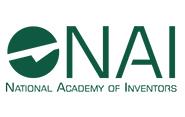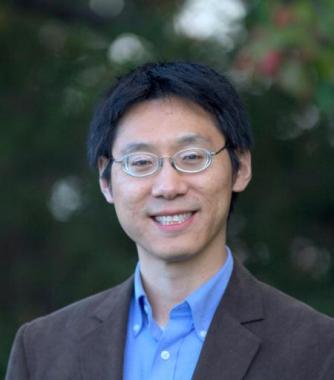Rong Fan Elected to National Academy of Inventors

Rong Fan, professor of biomedical engineering, has been elected as a fellow of the National Academy of Inventors (NAI).
 Fan was one of 164 inventors named 2021 NAI fellows by the organization, which annually recognizes the spirit of innovation in creating outstanding inventions.
Fan was one of 164 inventors named 2021 NAI fellows by the organization, which annually recognizes the spirit of innovation in creating outstanding inventions.
“His success and creativity are due in part to his singular combination of expertise across diverse fields such as bioanalytical chemistry, microengineering, proteomics, immunobiology, cancer biology, and translational medicine,” said Mark Saltzman, the Goizueta Foundation Professor of Biomedical Engineering, Chemical and Environmental Engineering, and Physiology. He added that Fan’s ability to move into new fields, identify important problems and do the work necessary to make a significant contribution, is particularly impressive.
Since establishing his independent research group at Yale, Fan has successfully developed numerous transformative and innovative technologies. Among his innovations for single-cell and spatial omics analysis is a microdevice he developed to simultaneously measure 42 immune effector proteins in single cells - the highest current multiplexing for a single-cell protein secretion assay.
This technology is the basis of IsoPlexis, the start-up company that he co-founded in 2014. The company’s IsoCode chip and IsoLight and IsoSpark platform is an all-in-one system that reads the individual cells of the immune system or tumors. By capturing and analyzing large quantities of highly precise data per individual patient cell, the technology allows health care professionals to determine which patients will benefit from certain cancer therapies. It allows physicians to know early in the process whether those immune cells will lead to an effective or toxic patient reaction, and how the patient can manage that treatment.
In addition to the major scientific advances the technology has made in the field of immune oncology, it has also been a boost for local and global economies. IsoPlexis, based in Branford, CT, now employs more than 400 people, and the technology has been adopted by more than 100 cancer hospitals. Numerous pharmaceutical companies, including all of the top 15 big pharma, have also adopted the technology.
Fan, who has a secondary appointment as professor of pathology at the Yale School of Medicine, has received multiple awards, including the NSF CAREER Award and the Packard Fellowship for Science and Engineering. He is a Fellow of the American Institute for Medical and Biological Engineering (AIMBE) and a Member of the Connecticut Academy of Science and Engineering (CASE). In addition, he developed a portable device for single-cell sequencing and a microfluidic deterministic barcoding technique for spatial mapping of multi-omics in tissue, which are the foundational technologies for launching two other companies, Singleron Biotechnologies and AtlasXomics, respectively. Fan also serves on the scientific advisory boards of those companies. Fan currently has 32 patents granted and 48 total patent applications.
The NAI Fellows Program highlights academic inventors who have demonstrated a spirit of innovation in creating or facilitating outstanding inventions that have made a tangible impact on quality of life, economic development and the welfare of society. Election to NAI Fellow is the highest professional distinction accorded solely to academic inventors. To date, NAI Fellows hold more than 48,000 issued U.S. patents, which have generated over 13,000 licensed technologies and companies, and created more than one million jobs. In addition, more than $3 trillion in revenue has been generated based on NAI Fellow discoveries.
Among the new class of Fellows are 33 members of the National Academies of Sciences, Engineering, and Medicine, and three Nobel Laureates, as well as other honors and distinctions. Their collective body of research and entrepreneurship covers a broad range of scientific disciplines involved with technology transfer of their inventions for the benefit of society.

